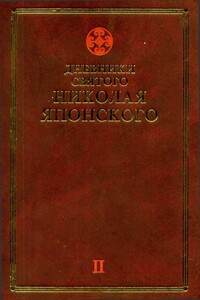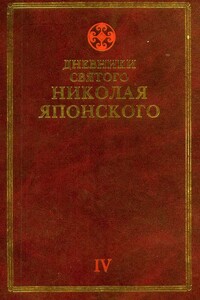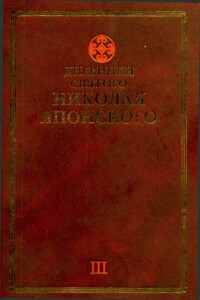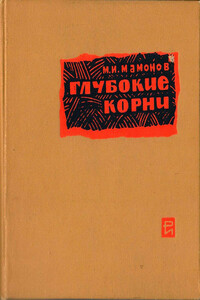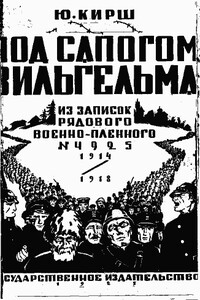Goshkevich wrote in the letter to the Holy Synod that the next chaplain should be «one who had completed the course of the theological academy and will be competent not only in ecclesiastical functions, but in scholarly activities as well, and who will present an excellent example of our clergymen through his private life, both to the Japanese and foreigners living here». (RGIA, f. 796, ed. khr. 572, d. 1859).
In response to this request, there arrived in Hakodate from St. Petersburg the 25 year–old Hieromonk Nikolai. To the great good fortune for the Japanese, this young priest was equipped with all the abilities that Goshkevich had asked for, though this was not proved for certain until Nikolai began his work. It can be said that Goshkevich recognized that the Japanese people were fairly cultivated, and thus endeavored to bring to Japan the sort of excellent missionary who was qualified to teach them Christian doctrine.[4]
Goshkevich returned to Russia in 1865, worked in the Asiatic Department of the Russian Foreign Ministry and retired from public service in 1867. About that time, he informed the Orthodox Missionary Committee that Hieromonk Nikolai had secretly begun to engage in missionary activity in Hakodate, and arranged for Nikolai to receive financial assistance from the Committee. Moskovskie vedomosti (The Moscow Herald) of October 8 (20), 1867, reported that «the Board of the Orthodox Missionary Committee received very encouraging news of the work of Hieromonk Nikolai Kasatkin in Japan… Can we leave this respectable Hieromonk without help? In western countries everywhere these missionaries enjoy the general support of the people. We hope that our society will also respond to the appeal by the Committee for subscription. Only recently, on September 13, the Committee learned for the first time through Mr. Goshkevich of the activities of Hieromonk Nikolai and of the needs of our mission in Japan».
Evfimii V. Putiatin
We do not know whether Goshkevich after his retirement had any opportunity to provide support to Nikolai. But E. V. Putiatin, the former Russian delegate to Japan (and under whom Goshkevich had worked as interpreter), succeeded Goshkevich and supported Nikolai’s missionary work in Japan. Putiatin had moved from the Navy to the political world, and was playing an active role there as a member of the National Congress.
There were many clergymen in Russia who were supporting Nikolai — for example, Isidor (Metropolitan of St. Petersburg), Fyodor Bystrov, Ioann Dyomkin. Among the lay believers supporting Nicholas, Putiatin was one of the most influential, and Nikolai made special mention of Putiatin’s support in his «Annual Report to the Executive Committee of the Orthodox Missionary Society» for 1878:
«Our Mission must express its deepest gratitude to Count Evfimii Vasilievich Putiatin. He is always providing for the Mission with love, and continues to perform good deeds for it not only by his own subscriptions, but also by explaining its needs and persuading others to contribute to it. The new stone building of the Mission, the foundation of which was made possible by the donations from the Grand Duke Aleksei Aleksandrovich when he visited Japan in 1872, would never have been completed if Count Evfimii Vasilievich had not undertaken to raise the funds for them».
Later, in 1879, when Nikolai was in St. Petersburg, he was able to meet Putiatin. Nikolai wrote in his diary for September 16: «When I was going out [from the Theological Academy — ed.], at the exit, I met Count Putiatin. It was just as though I met my true father. The Count dropped by my room. He promised to give me every support… He invited me to his house, to Gatchina. I promised to visit on Thursday».
We may know from Nikolai’s diaries in St. Petersburg that there was a very friendly relationship between Putiatin and Nikolai and that the former was like a patron of his missionary work in Japan.
Nikolai may have been introduced to Putiatin by Goshkevich during the time of his first return (1869 to 1870).

